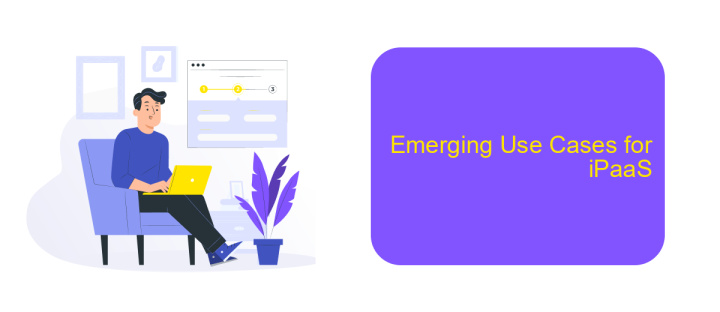iPaaS Trends
As businesses increasingly seek seamless integration across various applications and data sources, Integration Platform as a Service (iPaaS) is emerging as a vital solution. This article explores the latest iPaaS trends, highlighting advancements in automation, scalability, and security. Discover how iPaaS is transforming the way organizations manage complex integrations and drive digital transformation in a rapidly evolving technological landscape.
Role of iPaaS in Digital Transformation
Integration Platform as a Service (iPaaS) plays a crucial role in digital transformation by enabling seamless connectivity between various applications and data sources. Businesses can leverage iPaaS to automate workflows, enhance data accuracy, and improve operational efficiency. This is particularly important in an era where digital agility and real-time data processing are paramount.
- Automates data synchronization across multiple platforms
- Enhances operational efficiency by streamlining processes
- Improves data accuracy and consistency
- Scales easily to accommodate growing business needs
Services like ApiX-Drive exemplify the power of iPaaS in digital transformation. ApiX-Drive allows businesses to set up integrations without needing extensive technical knowledge, making it easier to connect various systems and automate workflows. By facilitating these integrations, iPaaS solutions help organizations stay competitive and responsive in a rapidly evolving digital landscape.
Key Trends Shaping the Future of iPaaS

One of the key trends shaping the future of iPaaS is the increasing demand for seamless integration capabilities. As businesses adopt more cloud-based applications, the need for efficient and reliable integration solutions becomes paramount. iPaaS platforms are evolving to offer more user-friendly interfaces and advanced features that simplify the integration process. For instance, services like ApiX-Drive provide businesses with the tools to easily connect various applications and automate workflows without requiring extensive technical expertise.
Another significant trend is the growing emphasis on real-time data processing and analytics. Modern iPaaS solutions are incorporating advanced data management capabilities, enabling organizations to process and analyze data in real time. This allows for more informed decision-making and quicker responses to market changes. Additionally, the rise of AI and machine learning technologies is enhancing the predictive capabilities of iPaaS platforms, further driving their adoption across various industries. As these trends continue to evolve, iPaaS will play an increasingly critical role in the digital transformation strategies of businesses worldwide.
Benefits and Challenges of iPaaS Adoption

Adopting an Integration Platform as a Service (iPaaS) can significantly streamline business processes by providing seamless connectivity between diverse applications and data sources. This not only enhances operational efficiency but also reduces the time and cost associated with manual data integration.
- Scalability: iPaaS solutions can easily scale to accommodate growing business needs.
- Cost-Effectiveness: Reduces the need for extensive IT infrastructure and manual integration efforts.
- Real-Time Data Integration: Ensures up-to-date information across all connected systems.
- Enhanced Security: Provides robust security measures to protect sensitive data.
- Simplified Integration: Services like ApiX-Drive offer user-friendly interfaces to set up integrations without extensive technical knowledge.
However, there are challenges to consider. Initial setup and configuration can be complex, requiring a clear understanding of business processes and data flows. Additionally, ongoing management and monitoring of integrations can be resource-intensive. Despite these challenges, the benefits of iPaaS often outweigh the drawbacks, making it a valuable tool for modern enterprises.
Emerging Use Cases for iPaaS

The rapid evolution of Integration Platform as a Service (iPaaS) is creating new opportunities for businesses to streamline their operations. Emerging use cases are demonstrating the versatility and power of iPaaS solutions in addressing complex integration challenges across various industries. Companies are increasingly leveraging iPaaS to enhance their digital transformation strategies and improve operational efficiency.
One notable trend is the integration of disparate systems and data sources to create unified workflows. This is particularly relevant for businesses dealing with a myriad of applications and platforms, where seamless data flow is critical. Solutions like ApiX-Drive are playing a pivotal role in this space, enabling businesses to automate and manage their integrations with ease.
- Real-time data synchronization between CRM and ERP systems
- Automated marketing campaign management across multiple channels
- Streamlined e-commerce operations through integrated payment gateways and inventory systems
- Enhanced customer support via integrated helpdesk and communication platforms
As businesses continue to adopt iPaaS solutions, the focus is shifting towards creating more intelligent and adaptive integration strategies. The ability to quickly adapt to changing business needs and technology landscapes will be crucial for maintaining a competitive edge. With services like ApiX-Drive, companies can achieve seamless integration and unlock new levels of productivity and innovation.
Best Practices for Successful iPaaS Implementation
Implementing an iPaaS solution requires careful planning and strategic execution to ensure seamless integration and optimal performance. First, conduct a thorough assessment of your existing IT infrastructure and business processes to identify integration needs. Define clear objectives and key performance indicators (KPIs) to measure the success of the implementation. Select an iPaaS provider that aligns with your business requirements, ensuring it offers robust security features, scalability, and support for various data sources and applications.
Next, prioritize data governance and compliance by establishing policies for data quality, security, and privacy. Develop a comprehensive integration strategy that includes detailed workflows and data mapping. Utilize tools like ApiX-Drive to simplify the integration process, enabling automated data transfer between applications without the need for coding. Engage stakeholders and train your team to ensure they are proficient in using the iPaaS platform. Regularly monitor and review the performance of your integrations, making necessary adjustments to optimize efficiency and achieve your business goals.
- Automate the work of an online store or landing
- Empower through integration
- Don't spend money on programmers and integrators
- Save time by automating routine tasks
FAQ
What is iPaaS?
What are the main benefits of using iPaaS?
How does iPaaS differ from traditional integration methods?
Can iPaaS be used for real-time data integration?
What should I consider when choosing an iPaaS provider?
Routine tasks take a lot of time from employees? Do they burn out, do not have enough working day for the main duties and important things? Do you understand that the only way out of this situation in modern realities is automation? Try Apix-Drive for free and make sure that the online connector in 5 minutes of setting up integration will remove a significant part of the routine from your life and free up time for you and your employees.


